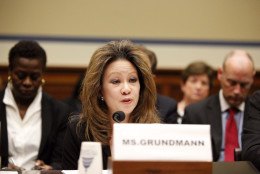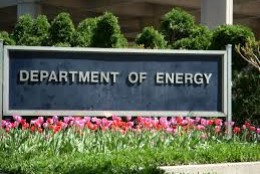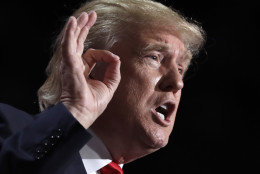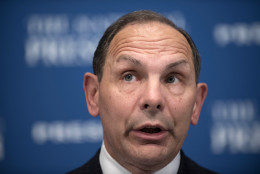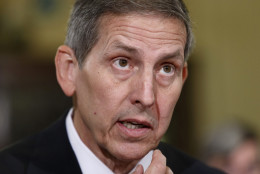Merit Systems Protection Board
-
President Obama's 2.1 percent pay hike may be the last feds see for awhile from Congress, says Jeff Neal, former DHS chief human capital officer.
January 10, 2017 -
With the the chairman of the Merit Systems Protection Board resigning in less than a week, employees appealing their disciplinary actions will have to be patient as they wait for President-elect Donald Trump to appoint at least one member for a quorum.
January 04, 2017 -
Unless President-elect Donald Trump appoints two new members quickly, the Merit Systems Protection Board will likely have one voting member come March 1, when Chairman Susan Tsui Grundmann's term expires. But the upcoming seat-changes have federal employment experts wondering whether this is the beginning of the end for MSPB.
December 09, 2016 -
In a report released by the Merit Systems Protection Board on Sept. 26, nearly 20 percent of federal resource management officials surveyed said political appointees at their agencies received no comprehensive training on merit system principles.
September 28, 2016 -
An Energy Department scientist told members of the House Science, Space and Technology committee on Wednesday that management sought to fire her for defending funding certain research during a congressional briefing.
September 21, 2016 -
The Merit Systems Protection Board announced it's launching the 2016 Merit Principles Survey to feds in July and August.
July 27, 2016 -
Donald Trump concluded the third and final night of the Republican National Convention Thursday with a speech that unpacked several of the presidential candidate's views on how federal executives and the Department of Veterans Affairs should be managed.
July 22, 2016 -
Nepotism is on the mind of the Merit Systems Protection Board because of the impending presidential transition, and it wants to warn potential appointees — even the next president.
July 14, 2016 -
The Merit Systems Protection Board released a report on nepotism in the federal government. The report includes examples of nepotism, as well as advice for agencies, employers, applicants and even the incoming administration, on how to avoid this prohibited personnel practice (PPP).
July 12, 2016 -
The House passed a bill that would change the way agencies discipline and remove federal employees and members of the Senior Executive Service. One provision would put all SES members under the same, expedited disciplinary process that senior executives at the Veterans Affairs Department had until the Justice Department challenged its constitutionality.
July 06, 2016 -
A recent decision from the Justice Department is prompting the VA to stop using the authority it has under current legislation to fire senior executives more quickly. The Senate Veterans Affairs Committee said the news comes after an inquiry over whether the VA planned to make any policy changes after the DOJ decision, which ultimately ruled that a key provision in the VA Choice Act is unconstitutional.
June 17, 2016 -
The Veterans Affairs Department officially fired three more senior leaders at the Phoenix VA Health Care System, the hospital where reports of wait time manipulation first started two years ago. Two of the three VA executives can appeal their removals to the Merit Systems Protection Board.
June 08, 2016 -
The Justice Department says a specific provision in the Veterans Choice Act, which ultimately renders that the disciplinary decision from administration MSPB judge is final for certain senior executives, violates a clause in the Constitution. U.S. Attorney General Loretta Lynch says Justice will continue to uphold vast majority of the Choice Act.
June 03, 2016 -
Veterans and agency hiring managers have mixed thoughts on the success of the veterans preference program. But there is some consensus that current regulations are too confusing and complex for both veterans and agencies.
April 21, 2016 -
If we start with these seven basics, we could have the potential to design a more accountable civil service that is free of political influence.
April 07, 2016


